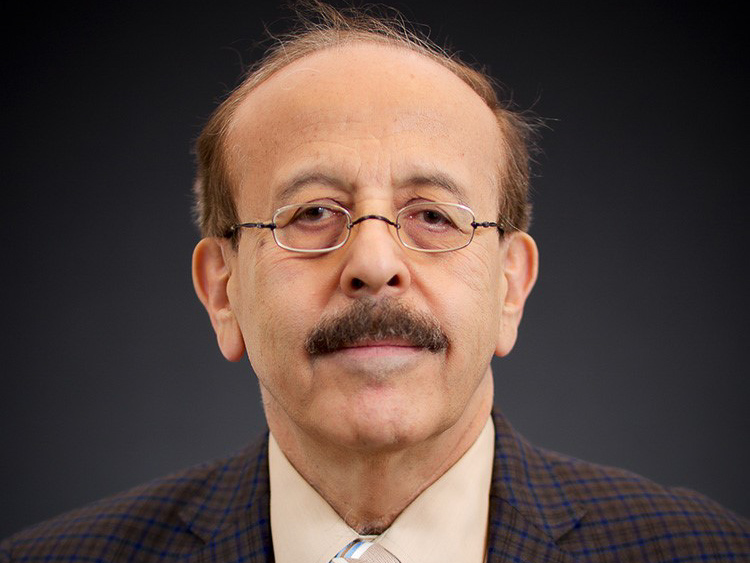
Dr. Ziad El Rassi
Regents Professor
Education:
- B.S., 1972, Lebanese University, Beirut, Lebanon
- Ph.D., 1978, Claude-Bernard University, Lyon, France
Professional Experience:
- Visiting Assistant Professor, 1978-80, Ecole Centrale de Lyon, France
- Associate Research Scientist, 1980-85, Yale University
- Research Scientist, 1985-88, Yale University
Research Interests:
- High performance liquid chromatography/affinity chromatography/capillary electrophoresis; capillary electrochromatography;
- Chiral separations; biological and environmental separations
- Enzyme immobilization; proteomics; glycomics.
Our current research in separation science is focused on furthering the development of modern liquid phase separation techniques such as high performance liquid chromatography (HPLC), capillary electrophoresis (CE) and capillary electrochromatography (CEC) by (i) introducing novel separation schemes and principles of high resolving power for biological substances and natural products (ii) investigating the underlying physico-chemical phenomena, (iii) improving the methodology of the three separation techniques, (iv) developing column-based separation platforms for proteomics and (iv) introducing novel applications of general use in the life sciences.
Recent research in the area of CE led to (i) the development of fused-silica capillaries with hydrophilic coatings for the high resolution separations of proteins and carbohydrates, (ii) the introduction of capillary enzymophoresis, a technique that couples immobilized capillary enzyme reactors to CE for the qualitative and quantitative determination of biological species, (iii) the development and evaluation of new micellar phases with adjustable surface charge density for micellar electrokinetic capillary chromatography of neutral and charged species of environmental significance, (iv) the characterization of chiral surfactants and other chiral selectors for the separation of a wide range of enantiomers and (v) the establishment of ways to control the magnitude and direction of electroosmotic flow (EOF). Very recently, we developed a multidimensional platform composed of capillary isoelectric focusing and CEC for human serum proteomics profiling.
In HPLC, our research encompasses several areas of biopolymer chromatography as well as environmental and natural products chromatography. These include high performance liquid affinity chromatography, hydrophilic and hydrophobic interaction chromatography, reversed phase chromatography, ion exchange chromatography and metal interaction chromatography of proteins, nucleic acids, carbohydrates, environmental pollutants and toxicants, natural products, etc. Our research focuses on improving the heart of the chromatographic process. We are developing novel stationary phases, support materials and mobile phases. Recent investigations in HPLC include the development of monolithic columns for affinity HPLC of proteins, and multidimensional separation platform for proteomics and glycomics. This involved the development of tandem affinity columns for the depletion of high abundance proteins from disease free and osteoarthritis human sera prior to proteomics profiling by two dimensional gel electrophoresis, matrix assisted laser desorption ionization mass spectrometry (MALDI-MS) and LC-MS/MS. Very recently, we investigated the capturing of specific sub-glycoproteomics by lectin affinity chromatography from breast cancer and disease-fee sera to achieve the quantitative differential expression of glycoproteins in breast cancer serum with respect to disease free serum using LC-MS/MS.
As a natural expansion, we are contributing to furthering the development of capillary electrochromatography (CEC), a technique that combines the separation principles of both HPLC and CE. This hybrid technique offers resolutions that are far superior than can be achieved by either CE or HPLC alone. Recent work in this area include (i) the introduction of novel silica-based stationary phases at high EOF specially designed for CEC, (ii) the development of monolithic silica-based and methacrylate-based stationary phases, (iii) the design of novel preconcentration approaches for the analysis of dilute samples, (iv) the establishment of segmented capillaries for enhancing the EOF and (v) the development of CEC methodologies of the separation of proteins, nucleic acids, carbohydrates, organic pollutants, etc.
Graduate students will be trained in various areas of analytical chemistry and exposed to many other areas including environmental analytical chemistry, biochemistry and life sciences.
